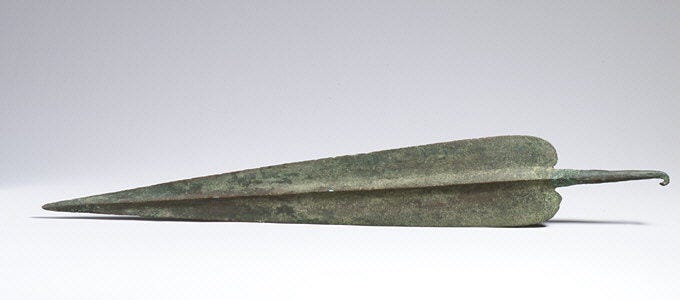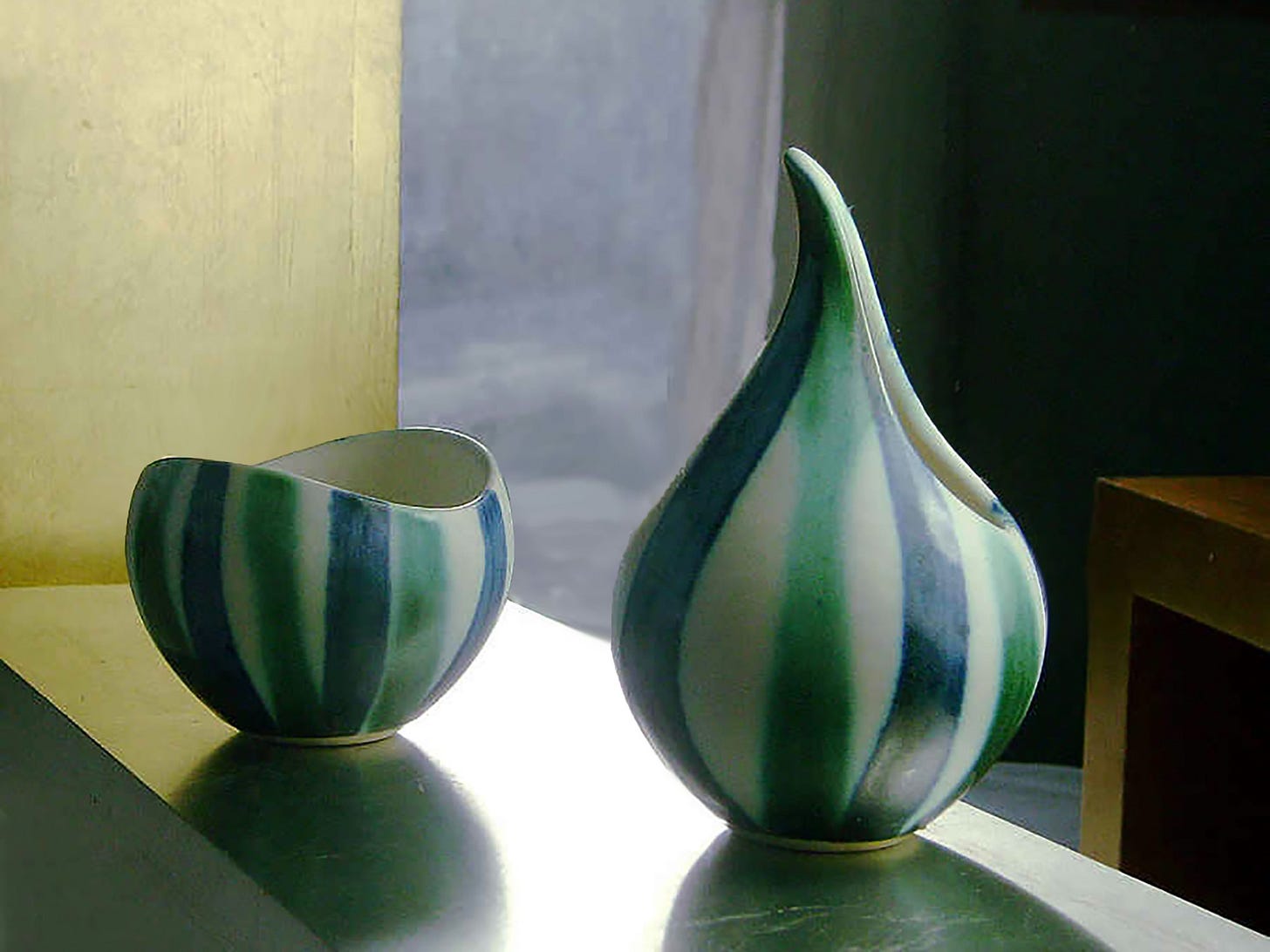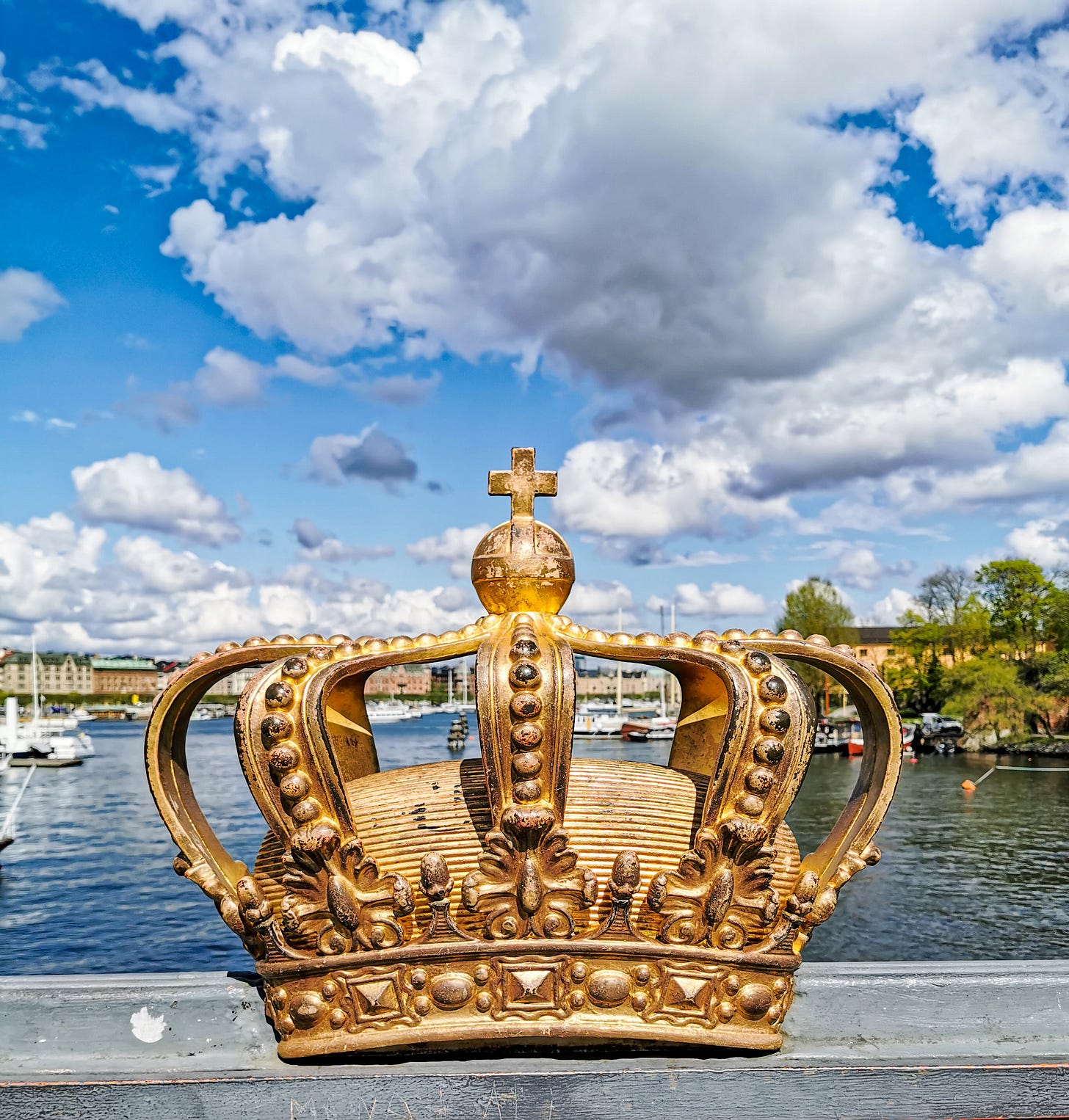Form Follows Function. What's The Function of the Boothbay Roundabout?
Placing a roundabout in an unobstructed thruway serves no sensible traffic function- so what is the function?
(Truth told with fictional license)
As global war erupts, on the local front we confront the scepter of weaponized landscaping. We could call it the War of the Petunias, the politics of perception, but as much as flower power insists, it’s not polite society.
The assault against economic development artist, Lester Spear, the protagonist of our story, continues. Spear has become the figurehead of the grassroots working-class entrepreneurial community in Boothbay. It’s class warfare on the Peninsula.
The antagonists, the Thibodeaus, representing the party of the new, lead the assault against Lester Spear. The Thibodeaus moved to the region to be close to the Botanical Gardens and the Common which they say is iconic and should stay iconic according to their wishes. They say it is an unpleasantry to see a food vendor’s truck and advocate the banning of food trucks from the Common, to keep it natural, as they perceive natural to be, cultivated landscaping reflective of the well-heeled, to borrow a term from developer Paul Coulombe, who manipulated the central landscaping into being with a lot of help from the Maine DOT.
Since the Thibodeaus are new arrivals and since this is the first time I have ever heard anyone say they moved to the Peninsula because of the Common, I am interpreting their words as intending the Common in its newly-branded transformation, blending into a roundabout covered in road decor and massive displays of identical plants lined up like occupying armies. Before the roundabout, the Common was not so flashy. Then no one would have said they moved to the Peninsula because of the Common, not with all of the land trust trails and rocky shoreline like Ocean Point. People came to Boothbay for a natural rural setting and if one did move to the Peninsula because of the Common it would have been because it is a space for common use.

The lifestyle of food vendors in trucks is discordant against the message of the road decor that comes tumbling down from the country club on the hill and wraps itself all around the Common and the Town Office replicating the landscaping style of the club.
The food trucks are designed for an entrepreneurial function to which the Common has traditionally given a home. A food truck is not a decorative object. It is a business asset to independent producers. The food truck likely bothers the Thibodeaus because they are used by a class of people- grassroots entrepreneurs, commoners, and that is not what the new road decor placed all about the Center of Boothbay promised them. The high-maintenance road decor brands the Peninsula as home to a wealthy urban culture. It is everywhere as the motorist enters the Center giving the first impression of the community. The decor starts small with little bits of ornamental grass appearing in the dividing line of the road and ends with a huge crescendo of repetitive flowerbeds diverting the motorist’s attention from a disruptive mini-roundabout occupying the middle of the main thruway for no sensible purpose. Conceal it with flowers and hope nobody notices that there is no reason for the roundabout to be there.
The Thibodeaus do not like the neon signs that Lester Spear had made up in Japan as messages in light on a dark December night. They are graceful and lyrical. The Thibodeaus want the expressive signs taken down. The Thibodeaus say it is unpleasant for them to pass by the Common on a winter night, to spot an original neon sign announcing the Winter Faire situated across the street from the respectable Dunkin Doughnuts with its permanent corporate sign greeting motorists as they enter the Center. The Dunkin sign doesn't bother them, it is owned by Paul Coulombe. He protects their territory and their values.
As Matthew Stewart writing for the Atlantic put it:
One of the hazards of life in the 9.9 percent is that our necks get stuck in the upward position. We gaze upon the 0.1 percent with a mixture of awe, envy, and eagerness to obey. As a consequence, we are missing the other big story of our time. We have left the 90 percent in the dust — and we’ve been quietly tossing down roadblocks behind us to make sure that they never catch up. The Atlantic The 9.9 Percent Is the New American Aristocracy By Matthew Stewart
Litteral roadblocks masquerading as decorative objects are placed in the middle of our thruway! It’s geopolitical class warfare! The real function of the roundabout, obstructing traffic as it flows around the Common from Boothbay to Boothbay Harbor, is revealed in how it is critically situated as an additional grand entrance to the country club and in the way it redirects the flow of traffic making those trying to get to and fro from Boothbay to Boothbay Harbor wait for traffic passing from the Country Club to the Botanical Gardens. We didn’t have to wait to get by before appearances took over functional considerations in the new Boothbay Peninsula.

Lester Spear, a man developing his brand, paid great attention to the details of the Winter Faire event. The neon signs are of an original and artistic design but not unique to Gardens Aglow as seen here.
Spear deserves recognition, not the unpleasant attacks that the Thibodeaus, the Boothbay Harbor merchants, and some others are lanching against Lester Spear and the entire designer-maker community that Spear’s vision supports. Spear’s creative energy took the Boothbay Winter Faire above and beyond standard expectations and Spear treated his vendors well. The Winter Faire leveled up from the average to installation art and to a happening, as it was called in the seventies. Very retro-futuristic.
That which the Thibodeaus equate with “natural” is the cultivated and repetitive landscaping, that covers the entire center of town in the style of the country club or the Botanical Gardens so that the Common is perceived to be the campus of the public-private government of Boothbay, inspiring the Thibodeaus to crown the Common as “a most beautiful feature of the whole Boothbay area“,
The Boothbay Common is truly a most beautiful feature of the whole Boothbay area and is always kept clean and inviting by the town workers. They definitely show their pride in their work and their installation of holiday lights are to be commended. The Thibodeaus
If the Center were left natural, in the rural sense, it would belong to the Peninsula as a whole. Today it does not. The courtly grounds, as so perceived through the eyes of the Thibodeaus threaten to annex the Common and its historical function, absorbing the Common into the fold of country club culture. The war of perception has already done half the job but the leaders under-estimated the resistance coming from the working-class entrepreneurs going about business as usual.
Between the Country Club and the Gardens, the former natural rural identity of the Peninsula is being transformed into a man-made landscape, controlled by the few, paid for by the many. When the recent batch of economic development masterminds talk about the once rural Peninsula, they lead with the Botanical Gardens, the Country Club, and Bigelow Labs. The leaders never mention Ocean Point, the pristine beauty of the Peninsula's natural assets.
Bigelow has been here as long as I can remember and blends in without trying to dominate. Bravo for Bigelow!
Not so the Gardens and the Country Club.
My opinion but it does not matter to the Thibodeaus. They are the new Boothbay, attracted by the message of the road decor, they are here to rule.
The Thibodeaus are obsessed with the food trucks and so they write unpleasant letters to the newspaper complaining about the Winter Faire and bringing the dark underbelly of the community to the surface.
During the Green Party Caucus, I had the opportunity to read a personal hate letter the Thibodeaus wrote about the Faire and sent it to the Spear family. Perhaps the Thibodeaus believed this was an appropriate thing to do. Perhaps they envision a community as a corporation in which they occupy a high executive level entitling them to send memos to other members of the community advising them how to adjust their behavior in accordance with the Thibodeau's preferences and values.
The Green Party Caucus had very few attendees but officers needed to be elected, so, I ended up becoming the chair and also elected to attend the regional meeting. I joined the Greens because the Peninsula’s future direction is managed by a faction with a shared agenda who act separately in unison. There seemed to be no organized effort opposing them. There are no defined parties in local politics but there are practical divisions. Boothbay currently operates as a subsidiary corporation of Maine Central Management. You might say the two Pauls, Paul Coulombe, and Paul LePage, both Boothbay residents, make up the iconic public-private relationship.
The Green Party is the Maine Independent Green Party. The largest group of registered voters in Maine is not enrolled in any political party. Research shows that the Independents tend to lean Democrat or Republican but that is not surprising since that is the choice they are given. The State has Rank Choice Voting but still has rules that make it difficult for third parties to collect signatures to get on the ballot.
At the time I contacted the Greens, The Boothbay Region Housing Trust had been recently formed by realtors Deborah Yale and Cindi Watson as a 501(3)(C) organization with an intention to get rid of “archaic ordinances” from 1986 in Boothbay Harbor, which, said Watson and Yale, if they could be gotten rid of, the condominiums on prime waterfront property could be used for “affordable workforce housing”. I looked into the ordinances and found that she was referring to ordinances protecting the working waterfront, which serves a large demographic segment that lives and works in the Boothbay Region.
I see the number one environmental issue of the Peninsula, the endangered Adams Pond and Knickerbocker Lake water supplies, being ignored by local leadership in favor of developer interests.
A grassroots organization grows locally. That means policy starts with local policy and grows outward and so it makes sense for the next level to be regional. However, the Boothbay caucus was the only Green Party caucus in Lincoln County so this is truly starting with a single seed. There are many Greens in Lincoln County. Maine has the largest number of Greens in the nation, but in Lincoln County, they are not connecting. It makes karmic justice that the home territory of the iconic public-private relationship, the two Pauls, is the seed of a new alternative political organization, especially as we gear up to a new gubernatorial race with Paul LePage running to become Maine’s first third-term Governor.
Since the Boothbay Caucus was the only Green Party caucus in Lincoln County, it is also the county caucus, as I see it. If there are no rules prohibiting it, I am going to suggest a county caucus every month. If people join from other municipalities then we could schedule monthly meetings to occur in those municipalities as well. It makes sense to be thinking locally and regionally as a whole, at times, while at other times not so much- as in it is none of Boothbay Harbor’s business what goes on on the Boothbay Commons! Boothbay is not a trickle-down economy of the Harbor. We are unique, noting that Andersen Design did very good business as destination shopping for decades.
During the caucus meeting, Desiree expressed uncertainty over whether she wants to run for re-election, being on the board with all men, she said, but the problem is not really that the other selectmen are men. Desiree is very different in nature and philosophy from the other three board members who were present at the Town Meeting that happened immediately after the Green Party caucus. I encouraged Desiree to run and said we will try to find compatible people to run for office in the next year. She needs that and we need her. Boothbay has a long history of undermining its grassroots entrepreneurs. Remember the Stimpson’s Boatbuilding episode?
The main purpose of the Town meeting was to discuss how the use of the Common should be regulated, instigated by attacks against Lester Spear and the Winter Faire. There were four select persons present, one being Desiree, Lester’s wife, two of which will be up for replacement in another year.
The three other board members held together as a unit and protested claims that they were specifically targeting Lester Spear but it was not convincing. The concerns of the meeting clearly targeted Spear who had not done anything for which there is not a precedent except to extend the season during which the Common is put to use, which is what local economic development leaders say they want, just not by the grassroots entrepreneurial community.
Much was made of the two-dollar entry fee that Spear momentarily charged to non-residents to offset his expenses with Spear’s distractors accusing him of making a profit. Spear discontinued charging the fee after enraged locals led by Boothbay Harbor merchants attacked him on Facebook.
It is a recurring theme that grassroots entrepreneurs are accused of making a profit as if it is a highly untoward thing to do. One online accuser writing in the Boothbay Register asked Lester Spear why isn’t his business a non-profit. One selectman kept reverting to the fee issue long after it had been discussed.
Lester Spear responded that he was following a precedent that had already been set by the Antiques Fair which charged an eight-dollar fee. The board justified the precedent by saying that they reached an agreement with the Antiques Fair that it would donate to a non-profit organization without disclosing any further terms of that negotiation, such as the identity of the benefitting non-profit organization, a curious omission. In responding to the Antiques Faire’s eight-dollar fee, the selectmen saw no need to call a special meeting to establish new terms of agreement for the use of the Common as they were doing in response to Lester Spear’s fee. Since the selectmen made no changes at that time and kept the terms of agreement with the Antiques Fair opaque to the public, it was fair for Lester Spear to interpret that as a precedent set for the use of the Common.
To my observation, Lester Spear sets high standards in whatever he does and this includes the way he interacts with the selectmen. Spear deflected the personal assaults and tried to steer the conversation toward the significant issues. Only once did he slip up by letting an explicative adjective slip out but it isn’t a word that we don’t hear every day all the time.
The public attendees spoke up both for and against the Winter Faire. One objector mentioned her disapproval of lighted signs that identified the location of the restrooms. One of the supporters said “Don’t we want the people attending the Botanical Garden to know there is a restroom? adding that the restrooms donated by Paul Coulombe are the most luxurious public restrooms she has ever seen, but maybe therein lies the real objection to the lighted sign- it might bring more business to the Winter Faire!
All who showed up for the Green Party Caucus are grassroots entrepreneurs and so I expect the Lincoln County Green Party platform to be representing the interests of grassroots entrepreneurs of which there are many. I enjoyed the meeting and hope that if we hold the meeting consistently it will gather steam and more participants.






